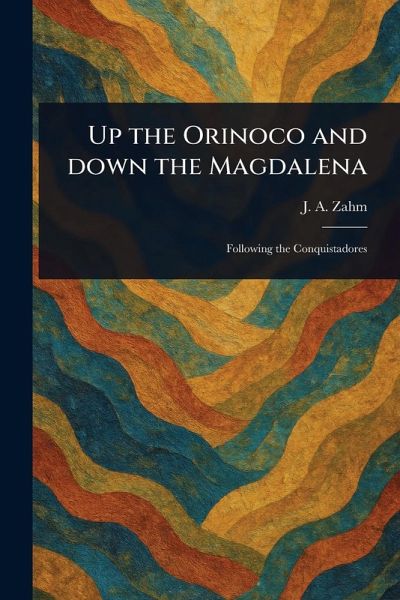
Up the Orinoco and Down the Magdalena

PAYBACK Punkte
9 °P sammeln!
Embark on a journey through the heart of South America with H. J. Mozans' "Up the Orinoco and down the Magdalena." This captivating historical account chronicles a remarkable expedition along two of the continent's most vital waterways: the Orinoco River in Venezuela and the Magdalena River in Colombia. Experience the thrill of exploration as Mozans navigates these legendary rivers, offering insights into the geography, history, and cultures encountered along the way. This enduring travelogue provides a unique glimpse into a bygone era, capturing the spirit of adventure and discovery that defi...
Embark on a journey through the heart of South America with H. J. Mozans' "Up the Orinoco and down the Magdalena." This captivating historical account chronicles a remarkable expedition along two of the continent's most vital waterways: the Orinoco River in Venezuela and the Magdalena River in Colombia. Experience the thrill of exploration as Mozans navigates these legendary rivers, offering insights into the geography, history, and cultures encountered along the way. This enduring travelogue provides a unique glimpse into a bygone era, capturing the spirit of adventure and discovery that defined early explorations of South America. Ideal for readers interested in travel, history, and the geographical wonders of Colombia and Venezuela, this meticulously prepared print edition preserves the timeless appeal of Mozans' original work, making it an invaluable addition to any collection. This work has been selected by scholars as being culturally important, and is part of the knowledge base of civilization as we know it. This work is in the public domain in the United States of America, and possibly other nations. Within the United States, you may freely copy and distribute this work, as no entity (individual or corporate) has a copyright on the body of the work. Scholars believe, and we concur, that this work is important enough to be preserved, reproduced, and made generally available to the public. We appreciate your support of the preservation process, and thank you for being an important part of keeping this knowledge alive and relevant.














